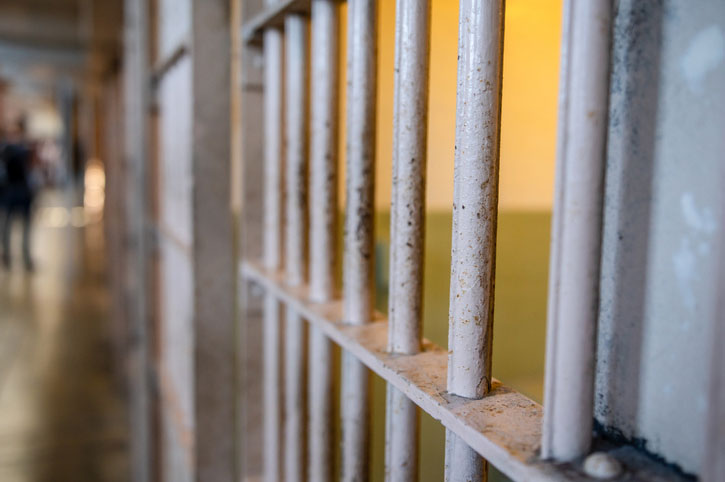Written by Dr. Emily R. Thornton, PhD, LCADC , Last Updated: November 13, 2025
Criminal justice addiction professionals are certified substance abuse counselors who specialize in treating individuals with substance use disorders in correctional, law enforcement, and court settings. They hold an IC&RC Certified Criminal Justice Addictions Professional (CCJP) credential, requiring existing SUD licensure plus 100 specialized training hours, 6,000 hours overall SUD experience (with 2,000 in criminal justice settings), 300 supervision hours, and passing a certification exam.
Table of Contents
America has lost the War on Drugs, but there have been a lot of casualties along the way. Strict laws and an intensive focus on drug arrests have brought many people with addiction into the prison system. Drug offenders account for more than one-third of the growth of state prison populations since 1985. According to Bureau of Prisons data from 2022, they make up approximately 46 percent of sentenced federal inmates.
All told, according to the National Institute on Drug Abuse, up to 85 percent of incarcerated individuals either have a substance use disorder or were under the influence, had drugs in their system, or committed a drug-related crime at the time of arrest.
With proof positive that the country can't arrest its way out of a drug crisis, it's clear that those individuals need the same kind of treatment and assistance as any other person with a substance use disorder. However, there are significant challenges in treating them once they become entangled in the criminal justice system.

The treatment community has started to answer those challenges. The most effective solution is a new specialization in the field: Criminal Justice Addiction Professionals.
What Are Criminal Justice Addiction Professionals?
Criminal justice addiction professionals are fully credentialed substance abuse counselors who specialize in working with people who have substance use disorders and are also entangled with the legal system in some way. They can be drawn from any of the various ranks of substance use disorder counseling careers. However, they also have additional training and experience in addressing the extra complications that arise from treating an SUD in a forensic environment.
You'll find these positions listed under titles such as:
- Treatment Court Liaison
- Criminal Justice Group Facilitator
- Reentry Specialist
- Intake Coordinator
- Forensic Substance Abuse Counselor
- Correctional Treatment Specialist
Many of them are listed under duplicate position titles, such as other SUD counselors and peer recovery coaches. The only thing that distinguishes them as criminal justice positions is the employer.
You'll also find that the day-to-day work of an addiction treatment professional in the criminal justice world takes on a few twists and turns.
What Is the Role of Criminal Justice Addiction Professionals in SUD Treatment?
Criminal justice addiction professionals carry on the same kind of assessment, diagnosis, and treatment work as any other SUD counselor. But they do so in prison environments or in either pre- or post-carceral settings.
That very setting shifts the duties of counselors toward case and resource management and advocacy work. Your patients have lost the ability to make all their own choices or seek resources or environmental changes to fight addiction. It may not even be their decision to work with you in the first place.
Since the lives of your patients are under the control of the state, it can become as important to work with a judge, lawyer, or prison warden toward recovery options as it is to work with the patients themselves.
The sheer volume of drug treatment requirements wrapped up in the criminal justice system means addiction professionals here very often engage in group counseling work.
All this additional work is wrapped around the basics that every substance abuse counselor must master. It can include:
- Court systems, procedures, and treatment court protocols
- Pre-release and post-release care and supervision programs
- Community perspectives on alcohol and drug addiction in criminal justice
- Policing perspectives on drug law violations
- Risk assessment and case management in forensic settings
- Documentation requirements for legal proceedings
With the extra training and experience to work in carceral settings, you can deliver effective treatment even to the most hardened offenders.
Earning Professional Certification as a Criminal Justice Addictions Professional
The primary credential available to SUD specialists in criminal justice treatment is the International Certification and Reciprocity Consortium's (IC&RC) Criminal Justice Addictions Professional Certification (CCJP).
Although IC&RC is a national and even international certification body, you can only obtain the CCJP by working through their various state-affiliated boards. While you can find those boards in just about every state, not all of them offer the CCJP credential.
Among the states that do offer it, if you qualify in one, that qualification will also be accepted in the others.
Each state board is free to set its own standards, but it must meet the IC&RC minimums at a minimum. Requirements may vary slightly by state, but must meet or exceed IC&RC baselines. Typically, you'll need:
- An existing SUD counseling license or certification (some states will also allow licensed social workers, psychologists, or professional counselors to apply for a CCJP)
- At least 100 hours of additional SUD training specific to CCJP practice domains
- At least 6,000 hours of overall SUD practice experience (this requirement can be reduced with higher education degrees)
- At least 2,000 hours of that experience must be specifically in criminal justice SUD practice
- 300 hours of supervision in criminal justice counseling settings
- Passing the IC&RC CCJP exam
The experience hours required can be significantly reduced if you've earned higher-level college degrees. For example, the 6,000 hours of overall SUD practice could drop to as low as 1,000 hours if you have earned a doctoral degree. Each state sets its own education substitution policies; therefore, please check with your state board for specific requirements.
The CCJP is a professional qualification rather than a legal one. You aren't restricted from treating prisoners or parolees if you don't have a CCJP. Instead, it's a sign to your potential employers and other contacts that you have gone the extra mile to develop additional expertise in this highly sensitive area of substance abuse treatment.
CCJP Exam Details
The IC&RC CCJP examination tests your knowledge across multiple practice domains specific to criminal justice treatment settings. The exam covers:
- Screening and assessment in forensic environments
- Treatment planning adapted to criminal justice settings
- Counseling techniques for mandated clients
- Case management and documentation for legal compliance
- Professional and ethical responsibilities in corrections
- Understanding of criminal justice system processes
The examination format, fees, and specific requirements vary by state. Contact your state's IC&RC board for detailed information about exam scheduling, costs, and preparation resources. Most states require candidates to fulfill all education and experience requirements before taking the exam.
Where Do Criminal Justice Addiction Professionals Work?

Credentials for CCJPs are aimed at individuals working in one of three settings:
- Law Enforcement agencies and police departments
- Judiciary systems, including drug courts and diversion programs
- Incarceration facilities, including jails, prisons, and detention centers
In some cases, they're employed directly by state, federal, or local prison authorities to work in those positions. In others, they may work for nonprofits or contract with private companies that provide services in those facilities.
Other addiction professionals may work directly with police agencies, helping officers shape their response to crimes involving drugs and people experiencing addiction. They may even assist at the policy level, developing new protocols for handling such individuals.
Drug courts or other specialized diversion programs employ others. They may be responsible for working directly with people convicted under such programs, or advising judges on the types of treatment or odds of success in such cases.
Which States Offer CCJP Certification?
The CCJP credential is available through IC&RC member boards in participating states. Not all states that participate in IC&RC offer the CCJP specialty credential; therefore, it's essential to verify availability in your state.
States that offer CCJP certification recognize the credential across state lines through IC&RC reciprocity agreements. If you earn your CCJP in one participating state, other CCJP-participating states will recognize your credential. Some states may require additional documentation, application fees, or supplemental requirements for reciprocity, so verify specific policies with the state board where you plan to practice.
To find out if your state offers CCJP certification:
- Visit the IC&RC member board directory
- Contact your state's credentialing board directly
- Check your state's specific requirements through our state and national certification guide
- Ask about reciprocity if you plan to work in multiple states
Understanding the relationship between state licensure and national certification through IC&RC is critical for planning your career path in criminal justice treatment.
Even if your state doesn't currently offer the CCJP, you can still work in criminal justice treatment settings with your base SUD counselor credential. The CCJP demonstrates specialized expertise but isn't always legally required for employment.
Can Criminal Justice Addiction Professionals Be the New First Responders for Drug Offenses?

Although the War on Drugs has been lost, there are still plenty of troops in the field. Fighting rear-guard actions and going through the motions of failed strategies because nothing has yet replaced them, many police departments haven't really gotten the message yet that something else has to happen to save America from the addiction crisis.
But there are places where substance abuse counselors are becoming the first responders instead of police.
Eugene, Oregon, was one of the first. CAHOOTS (Crisis Assistance Helping Out On The Streets) was established in 1989 and is operated by the local nonprofit White Bird Clinic. The program distributes police radios to two-person social services teams, which can include social workers, mental and behavioral health specialists, and addiction counselors. When appropriate, those teams can be dispatched to nonviolent calls that the police would otherwise have to handle.
Offering interventions, counseling, first aid, or transportation to places with human services, CAHOOTS takes a new approach to dealing with drug abuse on the streets. It, and programs like it, may be the newest and best way that addiction counselors can help keep patients out of the criminal justice system in the first place.
Salary and Job Outlook for Criminal Justice Addiction Professionals
Substance abuse, behavioral disorder, and mental health counselors working in criminal justice settings can expect competitive compensation, particularly when employed by government agencies.
According to the Bureau of Labor Statistics' May 2024 data, substance abuse counselors nationally earned:
- Annual mean wage: $65,100
- Median yearly salary: $59,190
- 10th percentile: $39,090
- 90th percentile: $98,210
Counselors employed directly by federal, state, or local government agencies typically earn higher salaries than the overall average. Government-employed substance abuse counselors average around $70,000 annually, reflecting the stable funding and structured pay scales in public sector positions.
Criminal justice addiction professionals with the CCJP credential may command higher salaries due to their specialized expertise. Factors affecting compensation include:
- Employment setting (federal prisons typically pay more than county jails)
- Geographic location (urban areas and high-cost-of-living states offer higher wages)
- Years of experience in criminal justice treatment
- Education level (master's degree holders earn more than bachelor's or associate degree holders)
- Additional credentials beyond CCJP
For detailed salary information by state and role, including regional variations in compensation, explore our comprehensive salary guide.
Job Outlook and Demand
The need for criminal justice addiction professionals continues to grow as the country shifts from punitive approaches to treatment-focused interventions. Several factors are driving demand:
- Increasing recognition that up to 85% of incarcerated individuals have SUDs or drug-related arrests
- Expansion of drug courts and diversion programs nationwide
- Federal and state initiatives prioritizing treatment over incarceration
- Bipartisan criminal justice reform efforts
- Alternative first responder programs like CAHOOTS are gaining traction
The Bureau of Labor Statistics projects employment of substance abuse counselors to grow faster than average for all occupations through 2032. Criminal justice settings represent one of the fastest-growing sectors within the field of criminal justice.
With one of the highest incarceration rates in the world, the United States has proven it can't arrest its way out of substance use disorders. But it can treat them, and it needs more professionals to do it.
What Kind of Degree Do You Need To Become a Criminal Justice Substance Abuse Counselor?
The education and training for criminal justice addiction professionals mirrors other kinds of substance abuse counselors, since you need the same license or certification as a foundation.
But it's also possible to find degree and certificate programs that are specifically aimed at treating addiction in criminal justice settings, such as:
- Associate of Science in Addictive Disorders Studies in the Criminal Justice System
- Bachelor of Interdisciplinary Studies in Criminal Justice, Substance Abuse Concentration
- Certificate in Chemical Dependency Specialist in Criminal Justice
- Master's degree with a forensic counseling or corrections concentration
Even in substance abuse degrees that don't have a formal concentration in criminal justice treatment, you'll often find elective classes available that dive into the specialty.
The coursework you'll find in specialized programs will cover all the usual topics of study for addiction professionals, but go into more depth in areas like:
- The Dynamics of Addiction and Criminal Behavior
- Criminal Justice System Processes
- Clinical Evaluation in Criminal Justice Settings
- Documentation and Case Management in Criminal Justice
- Monitoring and Participant Supervision Challenges and Requirements
- Legal and ethical considerations in forensic treatment
- Working with mandated clients and court-ordered treatment
You'll also find specialized courses in legal, ethical, and professional responsibilities for counselors working within the criminal justice system.
Specialized Training Is Needed To Work Effectively as a Criminal Justice Addictions Professional

All of these degree and certificate programs provide valuable education in your criminal justice addiction treatment skills. But there may be additional coursework and training requirements in your state to become a licensed or certified addiction counselor, and to earn the IC&RC CCJP credential.
Most schools attempt to design their programs to meet state educational requirements for substance use disorder counseling credentials, but it's always worth checking. If not, you'll be able to turn to an additional certificate or training courses to cover those subjects.
That's also likely to be the case for the CCJP qualification. In some states, certificate or associate degree programs will give you everything you need to cover initial training hour requirements for entry-level addiction counseling credentials and the CCJP.
There are also dedicated online training programs that focus on delivering the required hours and topics for the CCJP. Since the IC&RC standards are similar from state to state, these are usually well-aligned with requirements. In some cases, you may find that some amount of in-person education is also required.
Understanding the difference between certification and licensure is essential as you plan your career path. While state licensure is legally required to practice in most states, specialty certifications, such as the CCJP, demonstrate advanced expertise in specific treatment settings.
Your community and your patients need you to get that training. With one of the highest incarceration rates in the world, the United States has proven it can't arrest its way out of substance use disorders. However, it can treat them, and it requires more professionals to do so.
Frequently Asked Questions
What is the difference between a CCJP and a regular substance abuse counselor?
A CCJP (Certified Criminal Justice Addiction Professional) is a substance abuse counselor with specialized training and certification for working in criminal justice settings, such as prisons, courts, and law enforcement. They possess the same foundational credentials as other SUD counselors, supplemented by an additional 100 hours of specialized training, 6,000 hours of overall SUD experience (with at least 2,000 hours specifically in criminal justice settings), 300 hours of supervision, and a passing score on a specialty exam. Requirements may vary by state, but must meet IC&RC minimums.
How long does it take to become a criminal justice addictions professional?
The timeline varies based on your starting point. If you're starting with no credentials, expect 2-4 years to complete your education and gain experience for a base SUD certification, followed by an additional 1-2 years to accumulate the required hours of criminal justice experience and complete the CCJP requirements. Individuals with existing credentials can typically complete the CCJP requirements within one to two years.
Do I need a CCJP to work in a prison or jail?
No, the CCJP is not legally required to work in correctional settings. However, it demonstrates specialized expertise and may make you more competitive for positions. Some employers prefer or require the CCJP credential, while others will hire counselors with base SUD credentials and provide on-the-job training in criminal justice-specific skills.
Can I get the CCJP certification online?
Much of the training required for CCJP certification can be completed online, including the 100 hours of specialized education. However, the required hours of supervised criminal justice experience must be gained through actual work in qualifying settings. The examination format varies by state but is typically offered at testing centers. Check with your state's IC&RC board for specific requirements.
Is the CCJP recognized in all states?
No, not all states offer the CCJP credential through their IC&RC member boards. However, states that do offer CCJP recognize the credential from other CCJP-participating states through reciprocity agreements. Some states may require additional documentation, application fees, or supplemental requirements for reciprocity. Contact your state's credentialing board to verify the availability of CCJP and reciprocity policies.
Key Takeaways
- Up to 85% of incarcerated individuals have substance use disorders or were under the influence, had drugs in their system, or committed drug-related crimes at the time of arrest.
- CCJP credential requires existing SUD license plus 100 specialized training hours, 6,000 overall SUD experience hours (with 2,000 in criminal justice settings), 300 supervision hours, and passing the IC&RC exam
- Criminal justice addiction professionals work in prisons, courts, police departments, drug courts, and diversion programs.
- Government-employed counselors earn approximately $70,000 annually, higher than the national average of $65,100 for all substance abuse counselors (May 2024 BLS data)
- Not all states offer CCJP certification through IC&RC, but those that do recognize credentials from other participating states through reciprocity (may require additional documentation or fees)
- Specialized degree programs available at associate, bachelor's, and master's levels with criminal justice or forensic counseling concentrations
- Growing demand driven by criminal justice reform, expansion of drug courts, and alternative first responder programs
Ready to Make a Difference in Criminal Justice Treatment?
Explore substance abuse counseling degree programs and state certification requirements to start your path toward becoming a criminal justice addictions professional and helping break the cycle of addiction in our justice system.
2024 US Bureau of Labor Statistics salary and employment figures for Substance Abuse, Behavioral Disorder, and Mental Health Counselors reflect state and national data, not school-specific information. Conditions in your area may vary. Data accessed November 2025.








